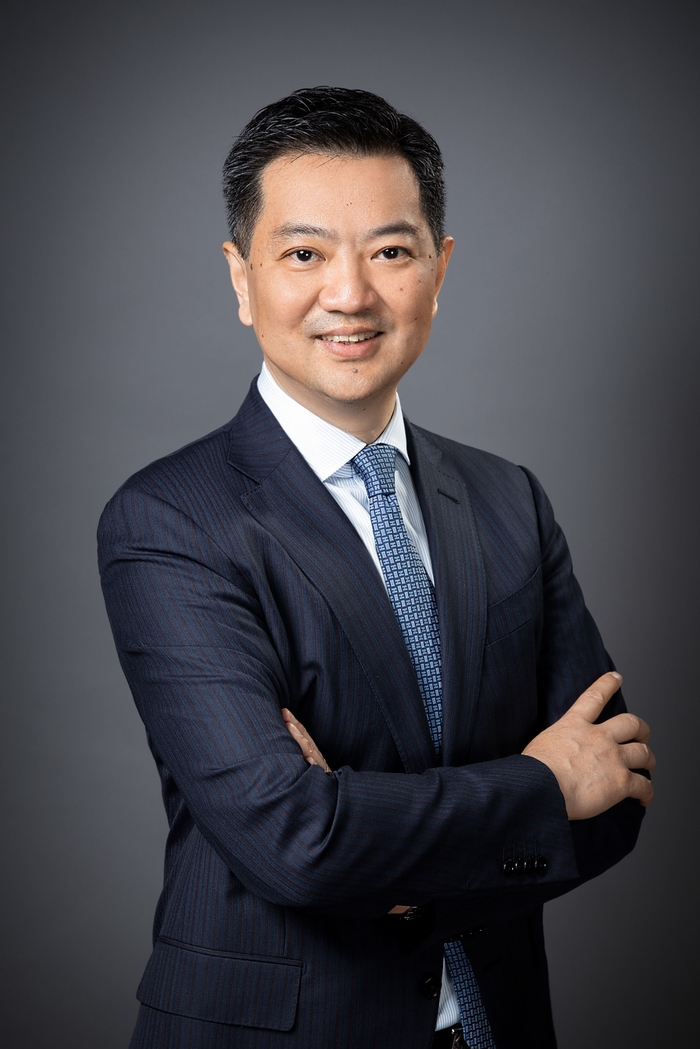
by LIU Chenguang
As the global economic and financial system undergoes profound changes, Shanghai’s role is to allocate both domestic and international financial resources. Its development as an international financial hub aligns with China’s goals of becoming a financial powerhouse.
In a recent interview, WANG Yunfeng, CEO of HSBC Bank China, shared his optimistic views on the growth of China’s wealth management market and the country’s evolving role in global finance. As China continues to open its markets and integrate internationally, Wang believes both domestic and global companies will benefit from the country's expanding economic opportunities. He discussed HSBC’s long-term commitment to China, the development of Shanghai as an international financial center, and the outlook for foreign financial institutions in the region.

Jiemian News: When did HSBC first enter the Chinese market, and why was Shanghai chosen as its base?
Wang: Shanghai is the birthplace of HSBC in China. We first established operations in 1865, and since then, we have consistently served the local market, acting as a financial bridge between China and the world. Shanghai's vibrant economy, high degree of openness, and capacity for innovation have made it a unique and attractive destination for foreign investment, including for HSBC. Today, our operations in China include banking, insurance, and fintech are all headquartered in Shanghai.
The Chinese market is attractive due to its vast scale and the policy dividends brought by deepening reforms. HSBC, as one of the largest foreign investors in China’s financial industry, is committed to long-term investments here. Over recent years, our investments in China have exceeded several billion yuan, including acquiring 100 percent of HSBC Life Insurance and establishing HSBC Fintech in Shanghai's Lin-gang Special Area Pilot Free Trade Zone.
Jiemian News: How do you see the entry of more foreign financial institutions into China? What new opportunities and challenges are emerging?
Wang: China’s financial market has rapidly developed over the past few decades and is now one of the most important markets globally. It draws attention from international investors due to its potential, especially as the country continues its economic and financial market transformation.
In wealth management, for example, we have seen rapid growth. HSBC has increased its investments in this field in China. In 2023 alone, the value of assets under management in China increased by 53 percent, while our customer base grew by over 30 percent. We have established three key distribution channels: retail banking, private banking, and HSBC insurance brokers. These channels are supported by four product centers: banking, insurance, asset management, and securities.
The acquisition of Citibank’s personal wealth management business in China earlier this year was another step to consolidate our market position. This acquisition reflects our long-term confidence in the Chinese market and strengthens our competitive edge in wealth management among foreign banks.
Jiemian News: What improvements are needed for Shanghai to become a world-class financial center?
Wang: Shanghai is currently at a critical stage in its development as an international financial hub. The recently revised Shanghai International Financial Center Development Ordinance, which came into effect on October 1, emphasizes the creation of a financial services ecosystem that aligns with the full lifecycle of technology companies. This will help elevate Shanghai’s status as a global center for both finance and technology innovation.
Globally, many of the top technology hubs overlap with major financial centers. This synergy is mutually reinforcing: technology boosts financial services, and financial resources support technological innovation. In China’s case, as the economy undergoes transformation, the financial industry must also adapt. Banks need to modernize their operations and align their risk management frameworks with the needs of emerging industries, such as technology and innovation.
Shanghai also needs to attract more interdisciplinary talent who understand both technology and finance. It is important not only to focus on bringing in talent but also to facilitate the healthy two-way flow of talent between the finance and technology innovation sectors. When designing finance programs, universities can incorporate technology-related courses such as fintech, technological innovation, and venture capital alongside traditional subjects like currency and finance, enabling finance graduates to also become partially skilled in technology. These measures in talent development hold long-term significance for Shanghai as an international financial center.
Jiemian News: How does China fit into HSBC's global strategy? What are your plans for further expansion?
Wang: HSBC has been a firm supporter and active participant in China’s market reforms and the development of Shanghai as an international financial center. Our scale and scope in China have continuously grown, with total assets surpassing 600 billion yuan and revenue exceeding 15.8 billion yuan by the end of last year.
HSBC’s global network covers over 90 percent of the world’s GDP, trade, and capital flows. Our strength lies in our ability to connect businesses between China and the rest of the world. We have set up dedicated China desks in 26 countries, offering tailored services to Chinese companies expanding overseas, and we also help foreign companies enter the Chinese market.
As China continues its green transition and develops new economic sectors, we see great potential for global businesses to benefit from this growth. We will continue to focus on key areas such as wealth management, capital market transformation, sustainable finance, and the development of the Greater Bay Area.